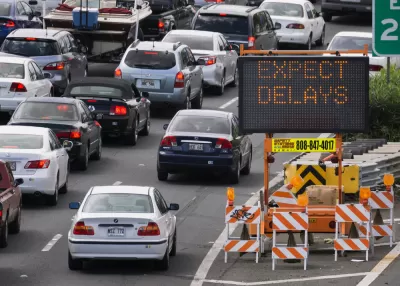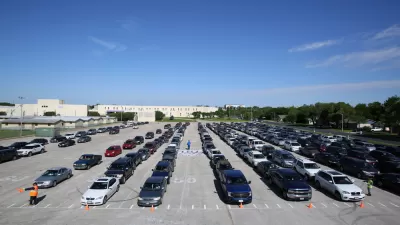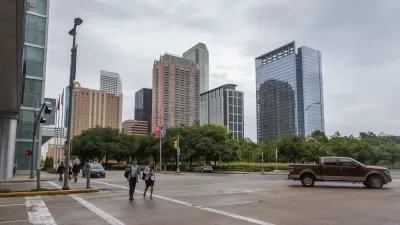A new report examines how governments can encourage citizens to use alternatives to private cars in order to reduce car dependency.

A new report by the International Transport Forum analyzes fiscal policies and other instruments for managing urban traffic and correcting current policy biases that favor automobile travel over more sustainable and affordable transport options. The report also reviews international case studies of integrated transportation and land use planning to make transportation more efficient and reduce congestion on streets.
Among the conclusions made, with much more detail, in the report:
- Cities need more efficient, less damaging and fairer use of scarce space.
- The guiding principle for managing car use is to enable citizens to carry out their daily activities without a car and not having to rely on cars to satisfy their transport needs.
- Significantly reducing the modal share of private vehicles in urban mobility implies significant long-term change in the spatial form of cities.
- The most effective urban mobility management systems deploy road pricing schemes together with road space allocation and land-use planning instruments.
FULL STORY: Reversing Car Dependency

Alabama: Trump Terminates Settlements for Black Communities Harmed By Raw Sewage
Trump deemed the landmark civil rights agreement “illegal DEI and environmental justice policy.”

Planetizen Federal Action Tracker
A weekly monitor of how Trump’s orders and actions are impacting planners and planning in America.

The 120 Year Old Tiny Home Villages That Sheltered San Francisco’s Earthquake Refugees
More than a century ago, San Francisco mobilized to house thousands of residents displaced by the 1906 earthquake. Could their strategy offer a model for the present?

In Both Crashes and Crime, Public Transportation is Far Safer than Driving
Contrary to popular assumptions, public transportation has far lower crash and crime rates than automobile travel. For safer communities, improve and encourage transit travel.

Report: Zoning Reforms Should Complement Nashville’s Ambitious Transit Plan
Without reform, restrictive zoning codes will limit the impact of the city’s planned transit expansion and could exclude some of the residents who depend on transit the most.

Judge Orders Release of Frozen IRA, IIJA Funding
The decision is a victory for environmental groups who charged that freezing funds for critical infrastructure and disaster response programs caused “real and irreparable harm” to communities.
Urban Design for Planners 1: Software Tools
This six-course series explores essential urban design concepts using open source software and equips planners with the tools they need to participate fully in the urban design process.
Planning for Universal Design
Learn the tools for implementing Universal Design in planning regulations.
Clanton & Associates, Inc.
Jessamine County Fiscal Court
Institute for Housing and Urban Development Studies (IHS)
City of Grandview
Harvard GSD Executive Education
Toledo-Lucas County Plan Commissions
Salt Lake City
NYU Wagner Graduate School of Public Service





























